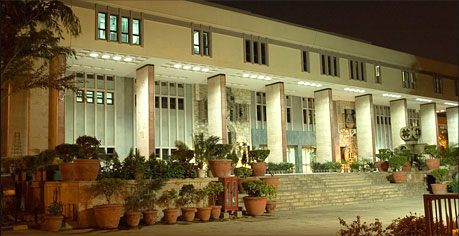“The hope expressed in Article 44, ‘a Uniform Civil Code’, ought not to remain a mere hope”: Delhi High Court

Recently allowing an appeal to set aside an order dismissing divorce proceedings between a couple belonging to Meena Tribe, the Delhi High Court put emphasis upon the pressing issue of ‘the need for a Uniform Civil Code’.
The single bench of Delhi High Court comprising Justice Prathiba M. Singh observed,
“The need for a Uniform Civil Code as envisioned under Article 44, has been reiterated from time to time by the Supreme Court. Cases like the presentone repeatedly highlight the need for such a Code - ‘common to all’, which would enable uniform principles being applied in respect of aspects such as marriage, divorce, succession etc., so that settled principles, safeguards and procedures can be laid down and citizens are not made to struggle due to the conflicts and contradictions in various personal laws.”
The Court further added,
“The hope expressed in Article 44 of the Constitution that the State shall secure for its citizens Uniform Civil Code ought not to remain a mere hope. The Supreme Court had, in 1985 directed that the judgment in Ms. Jordon Diengdeh (supra) to be placed before the Ministry of Law to take appropriate steps.However, more than three decades have passed since then and it is unclear as to what steps have been taken in this regard till date.”
In the present case, a couple belonging to Meena Tribe had a dispute over the validity of the judgment passed by a family court rejecting the divorce decree. The husband’s (petitioner) contention is that as marriage was solemnised as per the Hindu customs and rites, they will be governed by The Hindu Marriage Act, 1955 (HMA) regarding the divorce proceedings.
However, the wife’s (respondent) argued before the court that the provisions of the HMA, 1955 do not apply to the parties concerned as they are members of a notified Scheduled Tribe in Rajasthan, and hence the HMA, 1955 would not be applicable to the case of the said parties in view of Section 2(2) of the HMA, 1955.
Hence, the question that arose before the court was as to whether in these facts, the parties ought to be governed by the provisions of the HMA or should they be relegated to procedures of the Meena tribe?
Discussing the facts of the case, the court stated reiterated the observations of the Supreme Court in Ms Jordon Diengdeh v. S.S. Chopra, (1985) 3 SCC 62, the court said,
“The Supreme Court notices the various provisions under the personal laws applicable to marriages under the Hindu Marriage Act, Special Marriage Act, Parsi Marriage and Divorce Act, Muslim Law etc. The Court then concluded and observed as under:- “7. It is thus seen that the law relating to judicial separation, divorce and nullity of marriage is far, far from uniform. Surely the time has now come for a complete reform of the law of marriage and make a uniform law applicable to all people irrespective of religion or caste. It appears to be necessary to introduce irretrievable breakdown of marriage and mutual consent as grounds of divorce in all cases.”
The court further stated,
“The decisions in Shah Bano (supra) and Ms Jordon Diengdeh (supra) were rendered way back in 1985 and more than 35 years have been passed. The Supreme Court had expressed hope and observed that the time has come for enacting a uniform code of marriage and divorce and urged for a ‘complete reform’.”
Therefore, the court ordered that a copy of the present judgment to be communicated to the Secretary, Ministry of Law & Justice, Government of India, for necessary action as deemed appropriate.
Setting aside the judgment in question, the court held the judgment not sustainable .
The court further directed the Trial court is directed to proceed with the adjudication of the petition under 13-1(ia) of the HMA, 1955 on merits and render a decision within six months.
Case Title: Satyaprakash Meena Vs. Alka Meena
